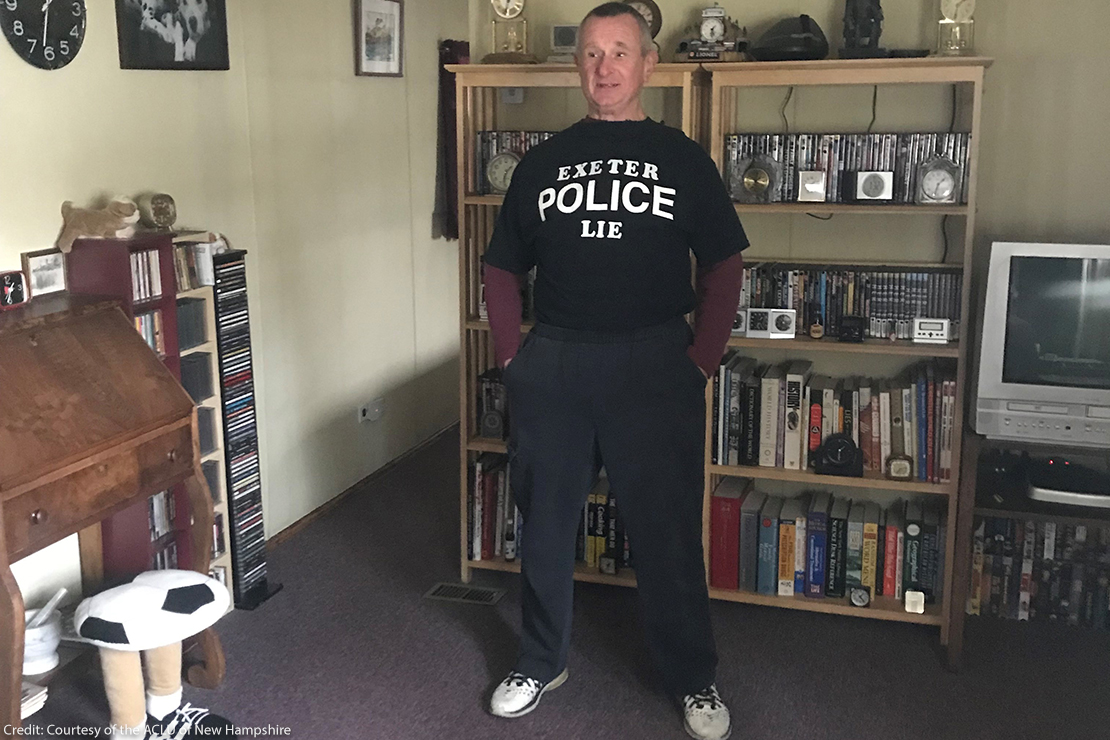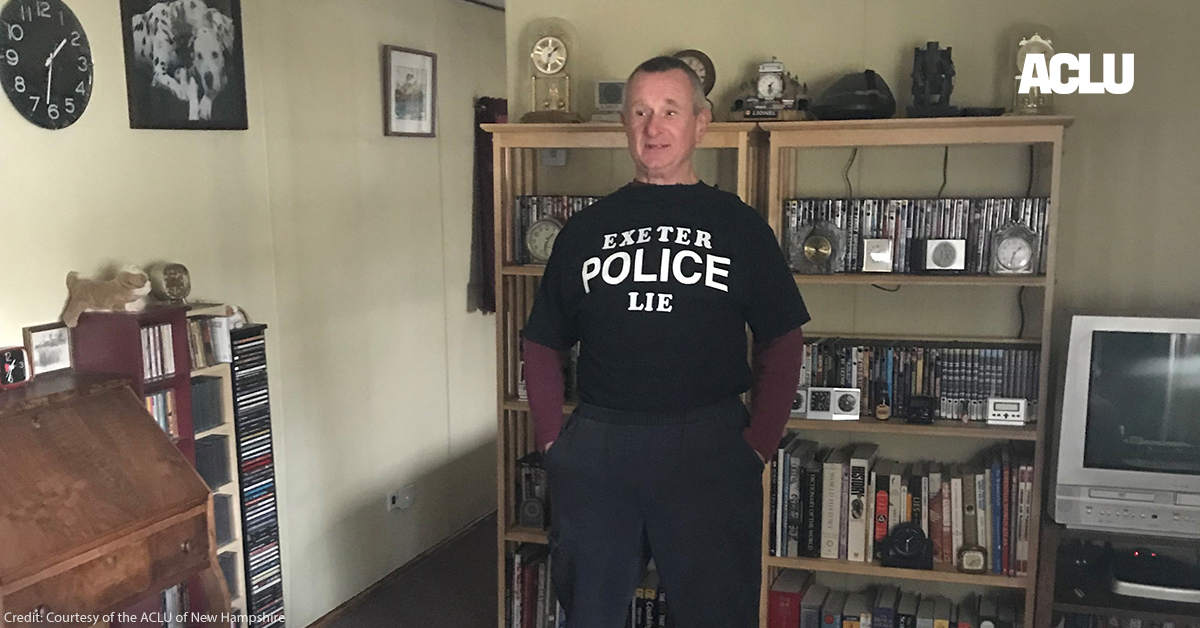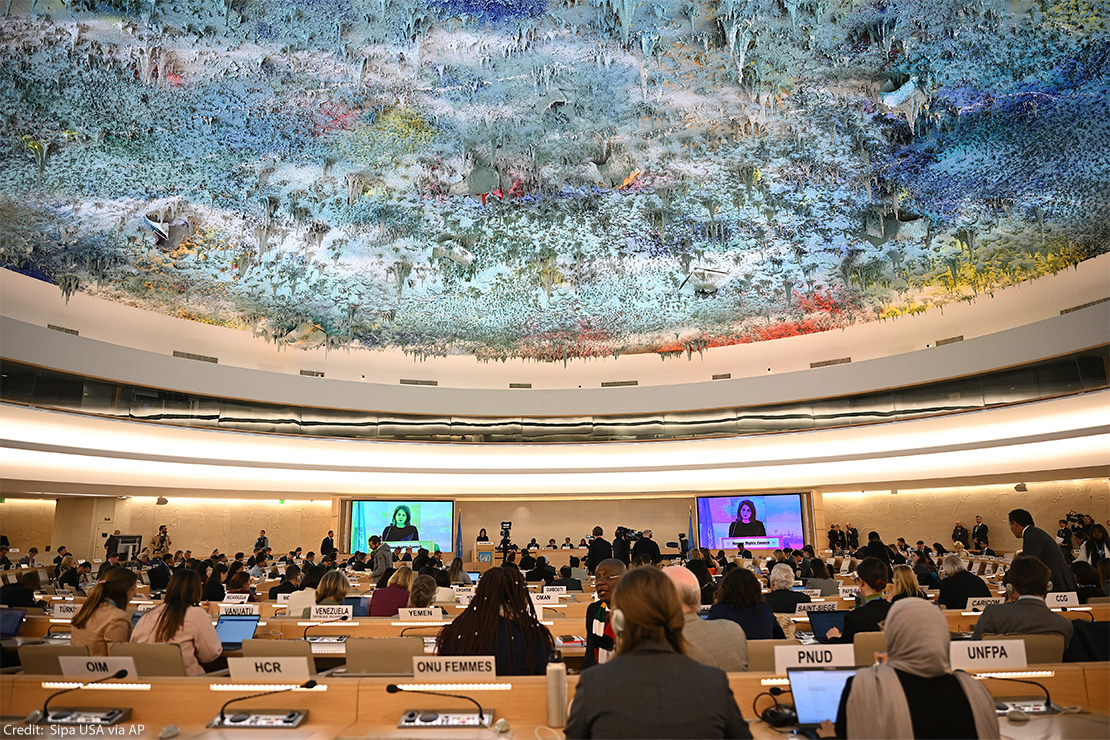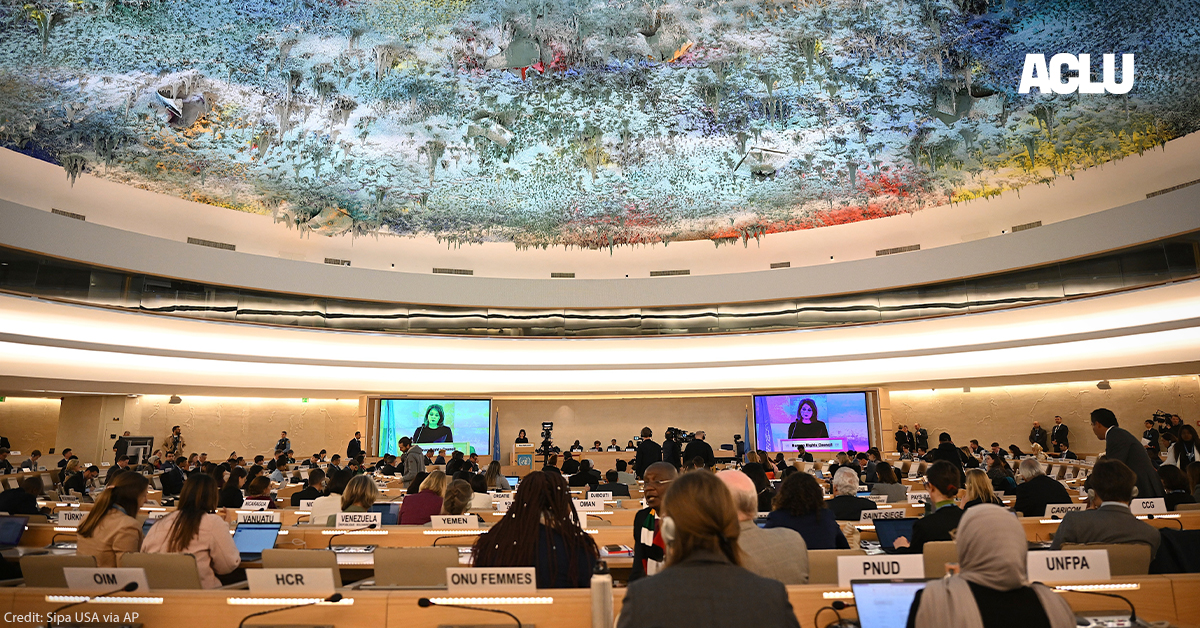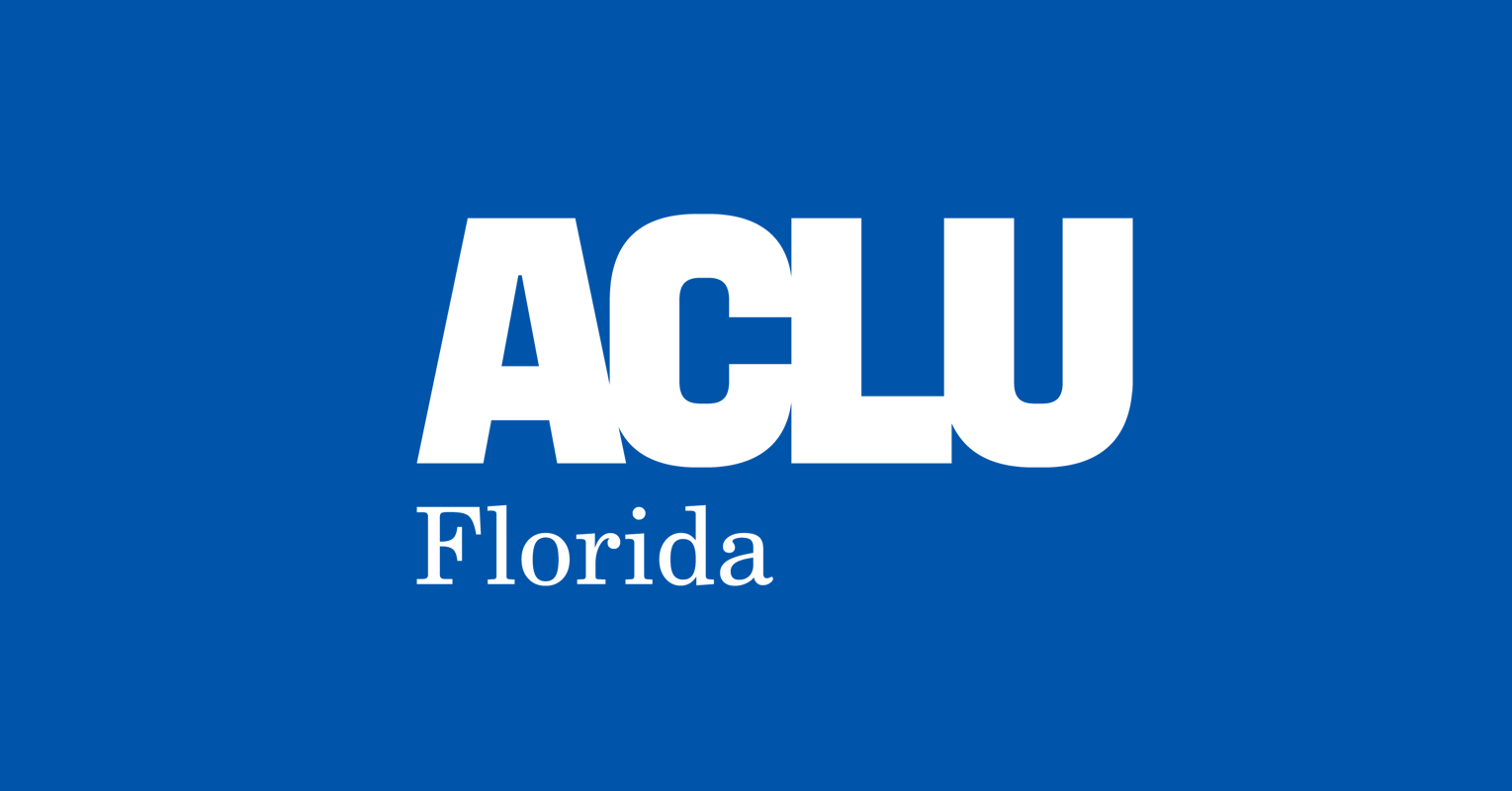This piece was published in partnership with The Nation.
What if you lived in a country where you could be jailed for criticizing a public official? What if that country were the United States?
In May 2018, Bob Frese, a resident of Exeter, N.H., posted on his local newspaper’s Facebook page the allegation that the town’s police chief had “covered up for [a] dirty cop.” The next thing he knew, a warrant was out for his arrest. A detective at the Exeter police department concluded that Frese had violated New Hampshire’s criminal defamation statute, which makes it a crime to purposely communicate “to any person, orally or in writing, any information which [the speaker] knows to be false and knows will tend to expose any other living person to public hatred, contempt or ridicule.” The detective filed a criminal complaint against Frese and arrested him. After the arrest generated public controversy, the New Hampshire Department of Justice advised that the prosecution was groundless because there was no indication that Frese knowingly defamed the police chief; in fact, Frese genuinely believed what he said. The police department dropped the prosecution.
What if you lived in a country where you could be jailed for criticizing a public official? What if that country were the United States?
This was the second time Frese faced prosecution for his speech. Six years earlier, he was arrested for criticizing a life coach—again under the state’s criminal defamation statute. Without an attorney, he pleaded guilty and was fined nearly $1,500.
Frese, whom we represent, has now asked the Supreme Court to rule that the First Amendment bars criminal punishment for criticizing a public official. It is one thing, we argue, to subject someone to civil money damages for defamation; it is another matter entirely to empower government officials to jail their critics on charges that the criticism was unfounded. The Supreme Court will decide in the coming months whether to take up the case.
Criminal defamation laws are relics of a bygone age. The doctrine of seditious libel—which criminalized defamation of the government and its officials—originated in England’s infamous Court of the Star Chamber at the beginning of the 17th century. When John Adams was president, the incumbent Federalist party passed the Sedition Act of 1798, making it a federal crime to libel government officials. The Adams administration brought dozens of prosecutions against publishers and editors aligned with Thomas Jefferson’s Democratic- Republican party. Jefferson thundered against the prosecutions as tyrannical, and allowed the Sedition Act to expire shortly after he won the election of 1800. But Jefferson himself encouraged at least one governor from his party, Thomas McKean of Pennsylvania, to bring state criminal libel prosecutions against Jefferson’s critics in the Federalist press. A century later, President Teddy Roosevelt tried (and failed) to criminally prosecute Joseph Pulitzer and others who had accused Roosevelt of corrupt business dealings related to the purchase of the Panama Canal.
Criminal defamation laws present this danger in its starkest form.
By the mid-20th century, criminal defamation laws were widely regarded as anachronistic. In 1962, the American Law Institute declined to include criminal defamation in the Model Penal Code, a guide for state legislatures, stating that “penal sanction cannot be justified merely by the fact that defamation is evil or damaging to a person in ways that entitle him to maintain a civil suit.” But criminal defamation laws remain on the books in a dozen states—and these laws continue to be enforced. In Minnesota, there were 121 criminal defamation prosecutions and 26 convictions between 2006 and 2014. In Wisconsin, there were 61 criminal defamation prosecutions between 1991 and 2007. In Virginia, there were at least 300 criminal defamation convictions between 1993 and 2008. Although many criminal defamation prosecutions concern disputes between private individuals, a sizable number involve criticism of local public officials.
As Frese’s case demonstrates, criminal defamation laws are easily abused by those in power to punish, harass, intimidate, and ultimately silence their opponents. That was the lesson James Madison, the principal author of the First Amendment, drew from the Sedition Act controversy. Madison acknowledged that the British common law of press freedom permitted criminal prosecutions for libel of public officials. But he maintained that the First Amendment was different because the United States was different. In our democracy, Madison argued, “[t]he people, not the government, possess the absolute sovereignty,” and the people must be free to criticize those who govern them. Without that freedom, an incumbent government will be sorely tempted to entrench itself in power by controlling public opinion—just as the Federalists tried to stave off electoral defeat by shutting down their opponents’ newspapers through criminal libel prosecutions. Madison allowed that public officials ought to have recourse to civil remedies for their injured reputations if falsely defamed, but he denied the government’s authority to criminally prosecute its critics.
It is one thing, we argue, to subject someone to civil money damages for defamation; it is another matter entirely to empower government officials to jail their critics on charges that the criticism was unfounded.
Madison’s attack on the Sedition Act laid the foundation for the Supreme Court’s landmark press freedom decision, New York Times Co. v. Sullivan, which held that the First Amendment protects speech criticizing public officials against even civil defamation liability, unless the defendant acted with “actual malice”—i.e., knowing or recklessly disregarding that the statement was false.
The Supreme Court extended those protections to criminal defamation prosecutions less than a year later in Garrison v. Louisiana. But because the criminal prosecution in Garrison was obviously deficient—in that the Louisiana statute did not require proof of “actual malice”—the court did not need to decide whether the First Amendment categorically bars criminal defamation prosecutions, as Madison argued it should. Although nearly six decades have passed since Garrison was decided, the court has not revisited the issue since.
More recently, the Supreme Court has recognized that even purposeful lies receive at least some First Amendment protection. In 2012, the court struck down a law that made it a crime to lie about having received military honors, rejecting the government’s argument that knowingly false speech is not entitled to First Amendment protection. Although the court fractured over particulars, all of the justices agreed that when it comes to speech on matters of public concern, the First Amendment restricts the government’s power to prosecute lies—not because the lies themselves are intrinsically valuable, but out of concern that the government will abuse its prosecutorial powers for political ends. As Justice Kennedy put it, “Our constitutional tradition stands against the idea that we need Oceania’s Ministry of Truth.”
Criminal defamation laws present this danger in its starkest form. As Frese’s case illustrates, such laws invite public officials to punish those who criticize how they do their jobs—a freedom central to representative self- government. The time is ripe for the Supreme Court to declare that the First Amendment categorically bars criminal prosecution for defamation of public officials.
Date
Monday, May 1, 2023 - 12:00pmFeatured image
